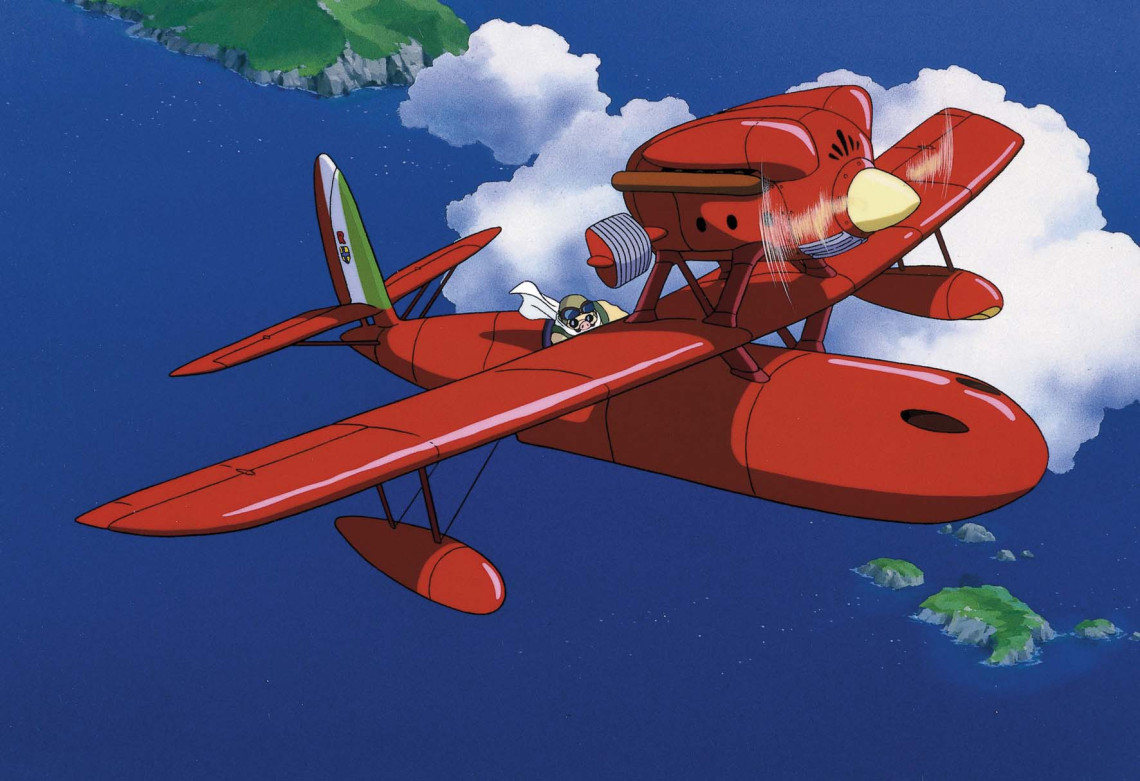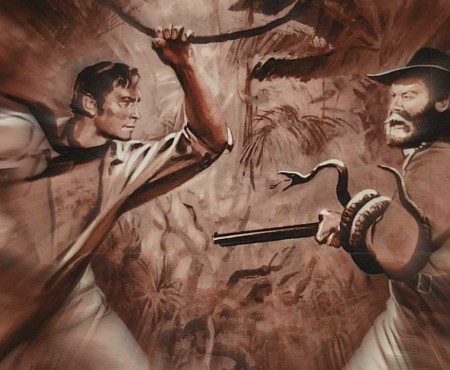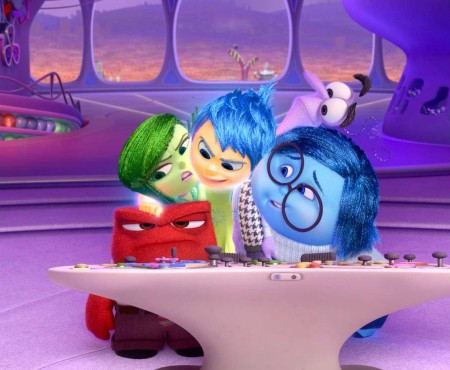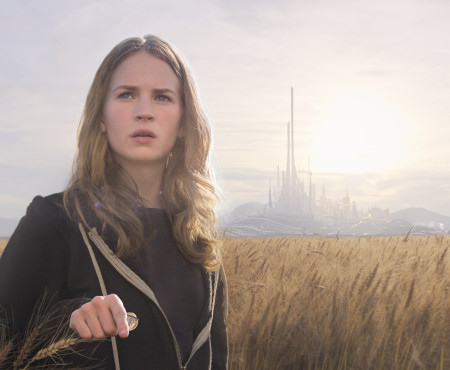Porco Rosso, much like Kiki’s Delivery Service, sets the stage for Hayao Miyazaki’s gorgeous final film, The Wind Rises, as much as it succeeds on its own merits. It’s a story set against the backdrop of the impending Second World War, focusing on the power and grandeur of airpower, with a European flair in production and character design. This fantastical story is maybe more low-key than Spirited Away or Princess Mononoke, but Miyazaki’s blend of old-fashioned adventure serials and magical realism are quite delightful, nearly 25 years after the fact.
The eponymous lead is a dashing Italian flying ace–well, he would be dashing if not for the fact, as the film begins, he’s been cursed (he thinks due to an act of cowardice in battle) with the face of a pig. His porcine features aside, Porco Rosso’s a hell of a flyer, to the point where his skill and confidence have attracted Gina, a hotelier who wishes Porco would pay attention to her a bit more. Porco’s talent has equally infuriated a flashy American named Curtis, who wants very badly to prove that he’s better than our hero, even if that means taking him down for good. After a failed attempt, Porco recuperates with the help of Fio, the granddaughter of his trusted mechanic, so he can face off with Curtis once and for all.
Porco Rosso’s charms are, as with most of Miyazaki’s films, present in its matter-of-fact and low-key atttiude: while Miyazaki deliberately obscures Porco’s face in the opening moments, building up to the revelation of his face, the other characters don’t express that much shock at how he looks. (The most notable look of surprise comes from Curtis, at the very end, when it appears that Porco’s turned back to being totally human, also something Miyazaki chooses not to show us definitively.) The romantic subplots—Porco’s roughly as unwilling to acknowledge how much Gina loves him as he is at the distressing fact that Fio, still in her late teens, is similarly enamored of him—aren’t terribly unfamiliar, but the manner in which they’re dealt with and resolved feel much more mature than most live-action fare that utilizes such tropes. So it goes with the entire film: the disparate elements (most of them, at least) that go into the creation of Porco Rosso may not be unique on their own, but together, they come together to create a singular whole. So, basically, it’s a quintessential Miyazaki film. What else do you need to know?
A/V
For a film that’s nearly 25 years old, the color scheme here–lots of bright reds and greens to reflect Porco’s heritage, along with the bright blues of the Adriatic Sea–feels as lively as anything being released in 2015. Whatever else people may feel about the films or the English dubs, Disney has arguably done quite well in its HD transfers of Studio Ghibli’s catalog over the last few years. As with the other Ghibli releases dropping today, I can’t speak to the potential issue of the English-language subtitles being a repeat of the script for the English dub of the project, primarily because this is another first-time viewing. (Pom Poko is a case where the Japanese-to-English translation is shakier, at least in terms of the setup.) But as with the other releases, the transfer is enough to recommend.
Extras
As you might expect, there’s not really much in terms of special features on this Blu-ray. The original Japanese storyboards are the predictable highlight; while the other two features–a featurette on the American actors who performed in the English-language dub, and a very brief interview with longtime Ghibli producer Toshio Suzuki circa the film’s release in the early 1990s–are slight, I do want to mention one thing about the “Behind the Microphone” extra. The interviews themselves are all standard-issue and unremarkable, save one note: Michael Keaton, who voices Porco Rosso in the English dub as if he’s still playing Batman, is wearing a tuxedo during his interview, which takes place away from the recording studio. Why? We may never know.
Overall
Whether you watch it wearing a tux or not—and why wouldn’t you, you aren’t a farmer—Porco Rosso is typically delightful work from Hayao Miyazaki, a thrilling adventure yarn filtered through his memorably fantastical point of view.





















One thought on “Blu-ray Review: “Porco Rosso””
Porco Rosso is a proper translation. Sadly, mine did not come with a slipcover (way to go, Amazon). It is not a “dubtitled” release. Sadly, Pom Poko IS a vile dubtitle and easily the most poorly translated Studio Ghibli release by Disney thus far — beating out even Princess Mononoke’s embarrassing translation. Disney literally censors many jokes (we’re told the racoon dog’s testicles are “pouches” rather than “golden balls”, for one of hundreds of examples that could be given), changes the final plea — which if translated properly directly asks the audience to preserve land for the animals — and alters the story through the dubs in Pom Poko. It’s really sad and it’s the end of me buying Studio Ghibli films that Disney has anything to do with.